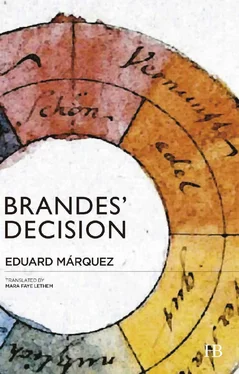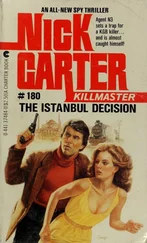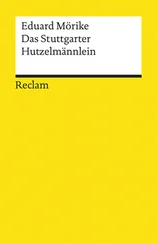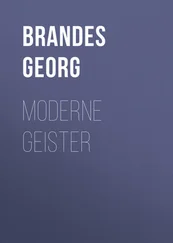The photograph with the ginkgo leaves eventually became one of the paintings on Hofer’s list, but I depicted my mother’s face not as a twenty-something year old, but rather how I imagined it would have looked with the passage of the years she didn’t live to see. Sitting beside the sewing box, she looked at me with a smile on her lips, as she might have done someday if I’d had the chance to explain to her that I’d “lost sight of the orpiment” when I saw Erika again at the Hans Goltz Gallery. Or when meeting Konrad. Or seeing the Cranach for the first time. My father didn’t like the painting. He said it didn’t look like her, but I suppose that, since it was Mother, nothing would have been good enough for him. That was the last piece on the list that I painted. Day had already broken. With a lump in my throat and fear gripping my bones.
What will happen to Mother’s album when I’m no longer here? I’ve considered destroying it, but I don’t have it in me. It would be a betrayal of my mother’s effort to transmit a part of her history to me. Perhaps someone will pick it up off the dusty ground of some flea market and, after turning a few pages, buy it to read all her comments, and that curiosity would give us the opportunity to escape oblivion.
The hours slip by maddeningly slowly. There are times when I don’t know how to fill them and I would give anything to be able to speed up time. Especially at night. During the occupation, I had the same feeling. There were days that I wished would end from the very moment they began. Under normal circumstances I’ve always taken advantage of moments like that, when holing up in my studio would have been a waste of time, instead taking long walks, visiting a museum, or seeing a friend. Anything but struggle in vain with my lack of motivation or ideas. Now, when I can barely keep my spirits up at all, it’s harder to overcome those periods of despondence. Listening to music or playing solitaire helps, but sometimes I get tired of that too. When the city was occupied it wasn’t easy either, because it really frustrated me to take part — as if nothing had changed — in the seeming normalcy imposed by the German authorities, but I could always go see an exhibition. Especially when they set up the Resistance galleries like Jeanne Bucher and L’Esquisse, where I remember seeing work by Miró, Léger, and Kandinsky. Contemplating such art was the perfect cure for all that ailed me since, at least for a while, I would forget about the worries that had forced me out of my studio.
As a young man, when things didn’t go the way I wanted them to, I would lose my head, convinced that I hadn’t learned anything, that I was a failure, that I would never achieve what I’d longed for since I was a child. Over the years I’ve discovered that, if I don’t paint today, I’ll paint tomorrow, or the day after, or the day after that. And that everything is useful for filling up the sack from which, sooner or later, the paintings will emerge: a poem, a melody, a landscape, a conversation. . With effort, of course. Learning, not giving up, laying in wait for the right moment. Professor Müller told me long ago: “Everything has its price.” Even though we sensed there was truth in it, we never missed a chance to say it in a mocking version of his voice. Until one day he caught me repeating it blithely to a classmate who asked to borrow some cash to go out on the town. After a few seconds of silence — during which I wanted to vanish — he merely said, in the same tone he used when harshly critiquing our drawing exercises: “Laugh, laugh now, you’ll have plenty of time to cry once you realize the true scope of your mediocrity.” I was shocked.
The Cranach was also a distraction for me. I loved to observe its details and find new ones: a figure on its way to the castle, a bird on a branch, a columbine flower about to open. It’s perplexing that, often, we can take so long to notice minutiae and yet once we’ve found them, they’re so obvious that they even seem larger than they truly are. And that doesn’t only happen with paintings. Every once in a while, my father and I would compare our memories. We almost never coincided on the details. It was relatively easy to agree on where we were, but not on the clothes we were wearing, the color of a waitress’ eyes or the hotel room bedspread. “Remember? It had horrible flowers. .” one of us would say.“What? They weren’t flowers,” the other would answer. I suppose it’s inevitable, because sometimes our memories depend on barren seeds. The only thing I can remember about certain people is that one always had sweaty hands, or that another’s mouth smelled of rotten eggs. There are places I only remember as a tree or a door half-buried in snow. Nothing more. Like dead wells or paths that lead nowhere.
Alma, on the other hand, recalled everything. Names, dates, places. . I don’t know how she did it. I asked her many times to write it all down, but she never took the suggestion seriously.“There’s no need,” she’d say. “It’s not important.” And now all that’s left is what I’ve been able to retain. Not necessarily what she would have held onto, but just what, for some reason or another, has survived in one of the nooks of my memory.
After working with Max Reinhardt at the Deutsches Theater, where she performed works by the young Expressionists she was so fond of and took part in the Schall und Rauch evenings, Alma’s political engagement took a more radical turn, especially when Hitler came to power. “I can’t find any compelling reason to hide my head under my wing,” she would say. And, instead of fleeing to save herself problems, like so many of her colleagues did, she decided to stay in Berlin to confront the situation the only way she knew how: by acting. She joined the Die Katakombe cabaret company and started to play cat and mouse with Goebbels’s officers because, although it had to be done very carefully, they risked satirizing Hitler and the abuses of the regime. She would be rolling on the floor with laughter when she told the anecdote about the greeting. Once they had located the couple of spies sitting in the back of the room, the owner of the cabaret would come out on stage with his arm held high to greet the audience with a “Heil, Hitler! And good evening to the other ninety-eight percent.”“You should’ve seen their faces,” added Alma. Another evening, while they were performing a sketch against the anti-Semitic measures, someone in the crowd shouted out, “Fucking Jews!” Alma faced up to them and, without losing her cool, responded, “Actually we’re not, but I’m sure it’s our obvious intelligence that led to the confusion.” She said that for a few seconds the silence was so thick you could have cut it with a knife.
The authorities shut down the cabaret and arrested some members of the company. Alma was sent to the Columbia-Haus camp, but was released a few weeks later thanks to Göring. When she told me that, I made her repeat it a couple of times. And then, all of a sudden, I understood her strange reaction the day she sang me the mocking song about the paunch and medals of “the artist of Prussia”: Hofer worked for the man who had saved her skin.“See? The ironies of fate: my benefactor is your thief,” she added finally. It seems someone knew what buttons to push to get Göring, who he never missed the chance to badger Goebbels, to revoke her arrest order. Alma was aware that her “benefactor’s” motives weren’t selfless, but she didn’t much care. “Without him, I don’t know what would have happened to me,” she said.
Once she’d been freed, Alma didn’t think twice about leaving Germany. “There was no point in tempting fate again, was there?” she asked me. And, stubborn as ever, she continued her particular battle in the Viennese cabarets. First at Literatur am Naschmarkt and, when they shut it down as a result of the annexation, at Wiener Werkel. Besides performing, what she most enjoyed was writing lyrics for the songs and adapting them to melodies the audience was familiar with. Her biggest hits were a parody of Hitler’s speeches with the opening music to Tannhäuser and a spoof of the Nazi military parades set to the final tune from the first act of The Marriage of Figaro . More than once she told me that it wasn’t an easy period, but not having to bite her tongue made up for all the risks. “It’s better to face up to things than to turn your back,” she often repeated. It didn’t last very long though, because the trip to Prague to see her sick father put an end to it.
Читать дальше












